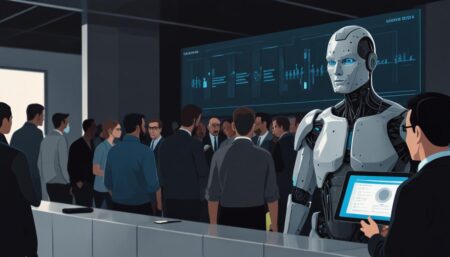Microsoft takes on Apple with the launch of Copilot+ PCs, equipped with AI capabilities that outperform MacBooks by not relying on remote data centres. The tech industry witnesses a surge in competition during the annual developer conferences, with a focus on advancing generative AI for personal computing and smartphones.
In a bid to challenge Apple, Microsoft has unveiled a new generation of AI-enabled PCs branded as Copilot+. Announced this month, these PCs are reportedly capable of operating AI functionalities without relying on remote data centers, potentially surpassing Apple’s MacBooks in performance. This development comes during the annual tech developer conference season, a period often marked by significant industry announcements.
Microsoft’s claim signals an intensifying competition in the personal computing and smartphone sectors, particularly in the realm of generative AI. Despite the hype surrounding the arrival of AI technologies like ChatGPT, real-world applications for consumers remain limited primarily to automated responses in services like Meta’s WhatsApp and Instagram, email composition tools, and text summarization services.
Tech giants, including Google and OpenAI, are focusing on advancing personal digital assistants and digital agents that can perform tasks on behalf of users. Google’s recent event showcased its new Gemini AI models with an extended “context window” to better understand complex user interactions. OpenAI demonstrated GPT-4o, an AI model featuring conversational capabilities.
However, significant challenges persist. AI systems need to better comprehend and respond to new and dynamic situations, as highlighted by Google’s AI head, Demis Hassabis. Additionally, making AI interactions as natural as human conversation remains a formidable goal. CEO Satya Nadella emphasized Microsoft’s strides towards creating “computers that understand us,” but acknowledged the complexity of this task.
As the industry pushes forward, the timing of AI’s transformative impact on daily consumer life remains uncertain, with substantial technological hurdles still to be addressed.










